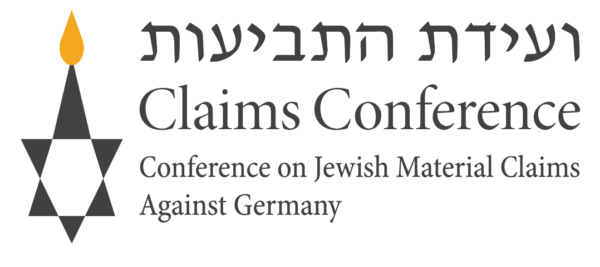All Holocaust compensation and restitution payments are excluded from calculations relating to eligibility for federally funded benefits, per 1994 federal legislation. The legislation stated that payments made to individuals because of their status as victims of Nazi persecution are to be excluded from income and resources in determining both eligibility for and the amount of benefits or services to be provided under any federal or federally assisted program which provides benefits or services based on need such as, but not limited to, Medicaid, Supplemental Security Income, food stamps (SNAP) and Federally subsidized Housing programs.
Further detailed information:
Bet Tzedek Legal Services prepared a self-help guide (see the buttons below), dated October 2023, on how to protect Supplemental Security Income and other federal benefits after receiving Holocaust-related compensation payments from the Claims Conference, which includes a form that may be used to report any such payments that were received.
This pamphlet originally prepared by Selfhelp Community Services and updated and maintained by the New York Legal Assistance Group, describes the effect of the Victims of Nazi Persecution Act passed by Congress in 1994 on Holocaust compensation payments and the calculation of a recipient’s income or financial resources. The pamphlet covers federal programs available nationally to Survivors in the United States, as well as some programs unique to New York State. Your state may, like New York, exclude restitution from being counted against eligibility for state-funded benefits.
A New York State website maintained by The Empire Justice Center, The Legal Aid Society and the New York Legal Assistance Group (NYLAG) includes information on the protection of Nazi Victim payments from being counted as income or resources that could disqualify an individual from eligibility for means-tested federally funded benefits. (Note that pensions under German Social Security (“Ghetto Pension”) or one-time payments through the German government (“Ghetto Fund”) fall under the exempt categories.)
Alongside the pamphlet you can download a self-tabulating currency conversion worksheet prepared by NYLAG. The worksheet contains the conversion rate table (from Deutschmarks and Euros to Dollars) going back to 1952. The worksheet will execute the conversion from Deutschmarks (or Euros) to Dollars automatically. Once the worksheet is completed, print it out and present to the relevant U.S., state, or local agencies that administer the federally funded benefit.
An example of a typical Compensation Payment Summary (in this case originating from one of the German government’s BEG offices) begins with a statement describing a lump-sum retroactive payment of DM 20,405. This amount should be entered into the worksheet for the month stated (here indicated as July 1957). Below this and in chronological order the pension amounts are indicated. “Rente ab” means “Pension [Amount] from” date, followed by the monthly pension amount for that period. Therefore, in this example, for the period beginning on August 01, 1957 and ending on March 01, 1959, the recipient received a pension of DM 173 each month. This amount should be entered into the worksheet for each month between those two dates. And so forth.
The New York State Medicaid program made an important ruling reversing an earlier fair hearing decision which would have denied an elderly Holocaust survivor’s application for Medicaid benefits to pay for his nursing home care. Read the full press release from Selfhelp Community Services in New York. The ruling set a precedent that frees a Nazi victim from the burden of having to prove that savings accumulated over decades originated from restitution payments. As long as the total amount of savings at the time the individual applies for Medicaid is less than the amount he or she historically received in restitution, those savings are not counted against eligibility.
The information presented herein is intended for information purposes only and solely as a general guide. The information is not intended as legal advice. It is a summary of specific issues and does not represent a definitive or complete statement of the programs and policies of the agencies or governments mentioned. The information may not address the special needs, interests and circumstances of individual recipients. Individual situations differ and recipients are urged to seek individual advice. Individuals seeking specific information on a program are urged to contact the relevant program or to consult their social service agency or help center representative. To the best of our knowledge the information is correct as of the date of this document and this information may change subsequent to the said date – September 2024

